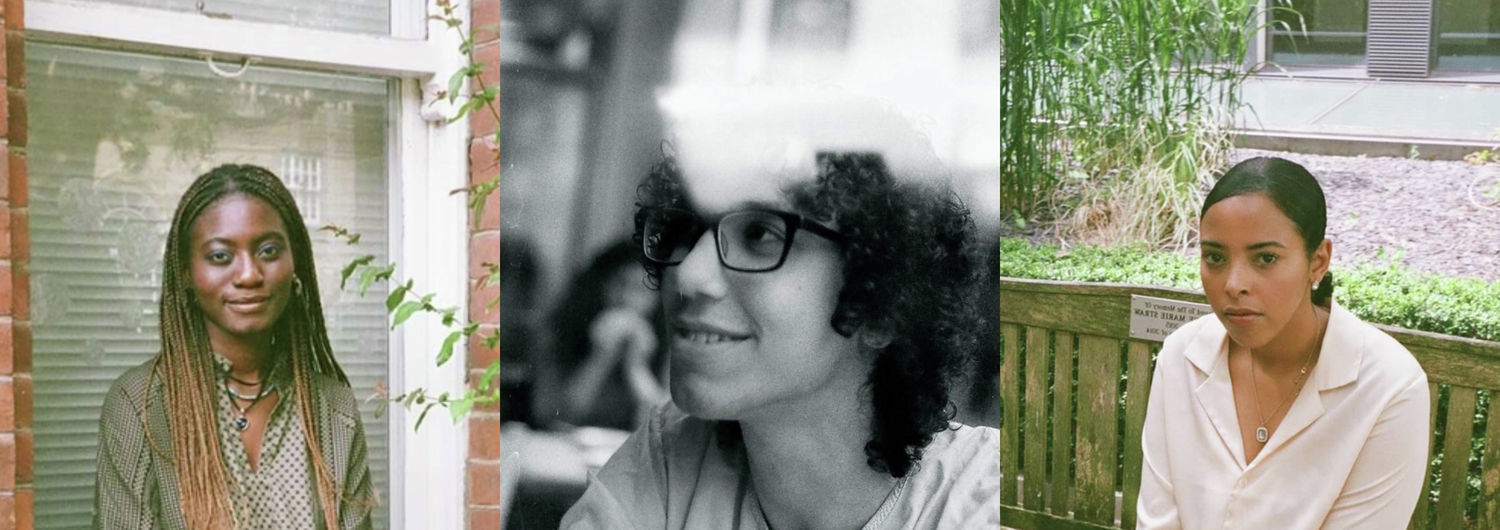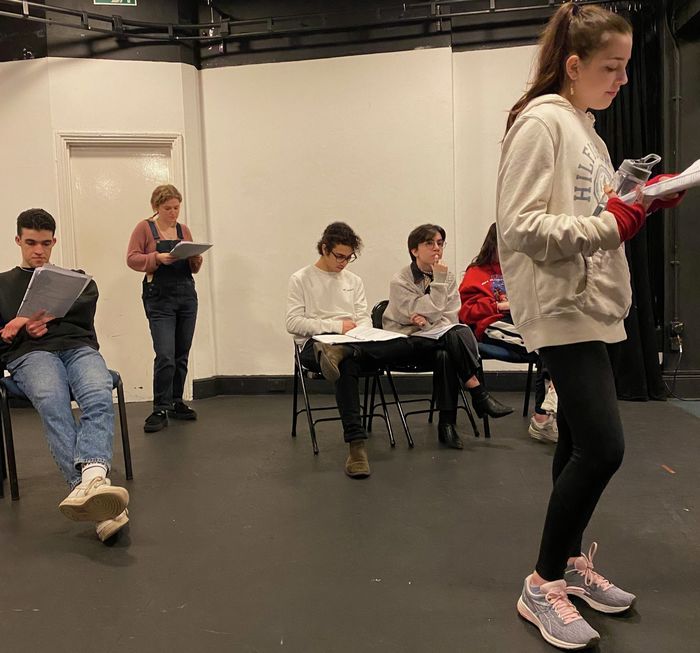Vidya Divakaran, the President of ‘Bread Theatre and Film’ - an organisation supporting the dramatic work of ethnic minority students in Cambridge - continues her interview with three of Cambridge’s most acclaimed student playwrights of colour.
Vidya: Because these stories are so personal to you, how does it feel to give them away for someone else to direct? (To Abraham) Well, you gave it to Lise.
Abraham: Yeah, I gave it very happily to Lise, actually. After she came on as Director, I was still drafting the play. She’d have all of these big ideas about everything I’d written. I think having her on board has made the play so much richer. I always describe it as not necessarily my play, but our play.
Vidya: Do you have pieces of advice for students who are thinking of writing? It could be practical things like, this is how you should go about thinking about plot, or research…
“If you don’t tell these stories, who will?”
Mojola: The main thing that held me back from writing was that I really wanted to read a book first on playwriting. And looking back at it now, that’s the reason I kind of dragged my feet. I went to two or three Marlowe writers group sessions, and they were really helpful in the sense that it was nice to have a community. To help me get started, I made story beats: so I would have a bullet point and then I’d be like, ‘Okay, what’s happening in this scene?’, and I’d highlight each character in different colours. I’d try to make myself write a scene a day, or every couple of days.
Abraham: I think the first half of my writing process, at least, was just me walking around in circles, thinking about what could happen. I don’t know if you two experienced this, but I’d be writing about something that’s quite personal to me, and I’d think, ‘Who cares? This is such a niché thing. Who’s gonna want to listen to this?’ But once I had it written, people with absolutely no personal connections to my play would read it and be like, ‘Wow, I completely understand’. And so you shouldn’t try to write what you think people want to hear about. Just write what you feel like writing. And I think that’s my advice for staying motivated.
Mojola: Also, someone asked me how I write dialogue. And my only advice is to talk to yourself. I’d just talk to myself out loud and have conversations with myself, not in character, but talking like how people talk.
Abraham: I talk to myself, funnily enough, in character. I play the characters and I switch sides. Put on the accents and everything!
Vidya: Okay, one more question. Why should more students of colour write plays?
Mojola: I think honestly, it’s just so important, because if you don’t tell these stories, who will? It’s so important to share your great cultural histories and personal experiences. These stories aren’t going to exist unless you write them.
Vidya: It’s so fun that you guys are literally the first people to ever write about these specific subjects in this context, in Cambridge, and it will be here forever.
“You have nothing to lose. Tell your story. Go for it. Why not? Be mediocre!”
Mojola: Exactly. Yeah, you’re creating something that will ultimately outlive you. And it’s just so important that we get more variety because, I mean, especially in Cambridge, so many plays have all white casts.
Chakira: It doesn’t matter because they reserved the last half an hour of auditions for ethnic minorities!
Mojola: Because that fixes everything!
Chakira: And no one shows up anyways because they’re all clearly white characters.
Mojola: And that’s the thing. The narratives are just for a specific demographic.
Chakira: Yeah, variety is the spice of life. And - back to what Abraham was saying about people not caring. When I’m writing, I do think, ‘Who do you think you are, writing a play?’ Maybe that comes from where I’m from, where theatre is not even a thing people think about. But then I came here and I started seeing student writing and I never thought ‘Why me?’ I always thought, ‘Why not me?’ Because I didn’t think my play was going to be amazing. I just thought that it couldn’t be worse than some of the stuff I’ve seen. If it’s gonna be bad, white people have been mediocre for years. So yeah, you have nothing to lose. Tell your story. Go for it. Why not? Be mediocre!
Abraham: When I first wrote the play, and I first told people what it was about, their usual response was shock, like - a play about a Quran? About Islam? Okay. And I’m like, why is that so surprising? Of course it’s about that, because I wrote it. You’ve got your own voice that is representative of your background, your culture and your heritage.
Vidya: And writing those plays is the start of giving opportunities to actors of colour and so on. It’s the start of a bigger change.
The Calligrapher by Abraham Alsalihi will play from Tuesday 5th February until Saturday 19th February at the Corpus Playroom. Heroes by Chakira Alin will play from Wednesday 23rd February until Friday 25th February at the ADC theatre.


